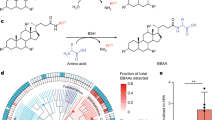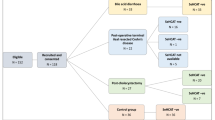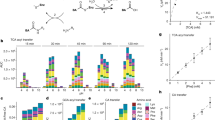Abstract
ABSTRACT: Sodium-dependent bile acid uptake is developmentally regulated in the rat ileum. Transport activity is abruptly expressed on postnatal d 17, although the mechanisms controlling this expression are poorly understood. Changes in bile salt metabolism and hepatic transport result in a marked increase in bile flow before postnatal d 17, and thus this study examined the effects of bile salt feeding on the development of ileal bile acid transport. Twelve-d-old rat pups were gavage-fed saline, taurocholate, or mannitol on a daily basis for 3 d. Sodium-dependent bile acid transport was studied by rapid filtration using ileal brush-border membrane vesicles prepared from the various experimental groups. Taurocholate feeding resulted in precocious development of sodium-dependent bile acid transport and induction of sucrase activity. Mannitol feeding, used as a control for the effects of diarrhea-induced stress, resulted in similar sucrase activity, yet sodium-dependent bile acid transport was induced to only half the level observed in taurocholate-fed animals (3.2 ± 1.6 versus 6.9 ± 2.0 pmol/mg protein/45 s, p < 0.001). Serum corticosterone levels were similar in the mannitol- and taurocholate-fed animals (3.8 ± 1.3 versus 4.6 ± 1.8 μg/dL). Both feedings lead to histologic maturation of the ileum, with a more pronounced effect in the taurocholate-fed pups. Bile salt feeding induces precocious expression of ileal bile acid transport, apparently by both diarrhea-induced stress and a bile salt-specific effect.
Similar content being viewed by others
Log in or create a free account to read this content
Gain free access to this article, as well as selected content from this journal and more on nature.com
or
Author information
Authors and Affiliations
Rights and permissions
About this article
Cite this article
Shneider, B., Michaud, G., West, A. et al. The Effects of Bile Acid Feeding on the Development of Ileal Bile Acid Transport. Pediatr Res 33, 221–224 (1993). https://doi.org/10.1203/00006450-199303000-00002
Received:
Accepted:
Issue date:
DOI: https://doi.org/10.1203/00006450-199303000-00002



